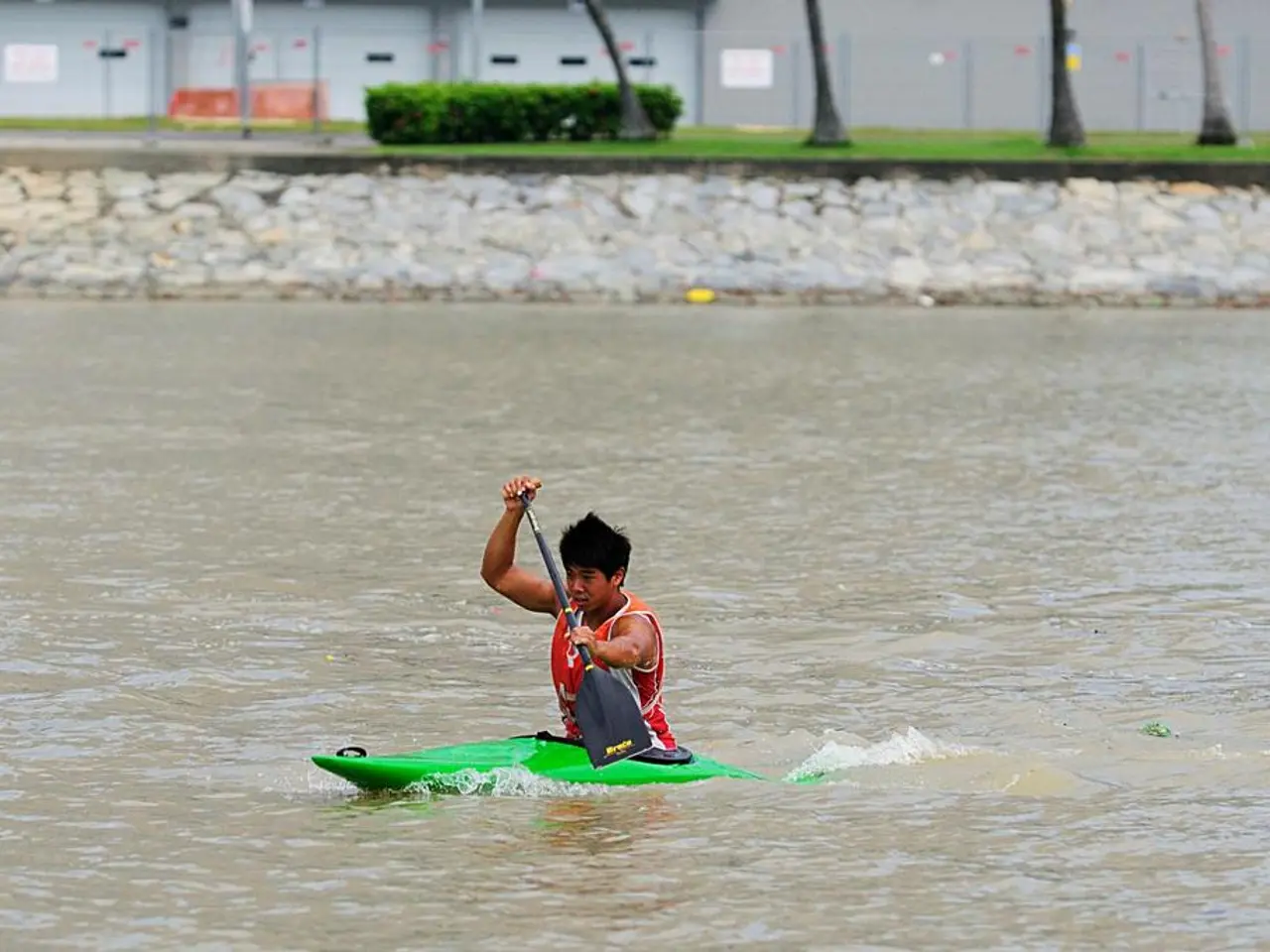Uncovering the nation's underwater landscapes
Clean Water Sports Alliance Unveils Comprehensive Report on Recreational Water Use in England
The Environment Agency's Clean Water Sports Alliance (CWSA) has released a significant report titled "Exploring Recreational Water Use in England." This report, a collaborative effort involving 17 organizations, offers the first nationwide, data-driven overview of recreational water use in England, filling crucial gaps in understanding the trends of activities like swimming, paddling, rowing, sailing, and multisports events.
The report, spanning from 2017 to 2024, has collated over 13,500 records of various water activities. These records were meticulously mapped and categorized into 3,347 distinct recreation locations across England.
Of these locations, 2,521 are inland freshwater sites, while 826 are coastal and estuarine. Surprisingly, only 451 of England's water bodies are designated bathing waters, with just 15 being rivers.
For the CWSA, which advocates for clean, safe water environments for sport and recreation, this report offers invaluable empirical evidence. The quantification of water recreation sites and participation trends enables CWSA to base their campaigns on solid data rather than anecdote, strengthening their case when lobbying for improved water quality standards and environmental protections.
The report offers several ways to inform future planning and policy advocacy:
- Evidence-Based Advocacy: The report's data on water recreation sites and participation trends allows CWSA to base their campaigns on solid data rather than anecdote, strengthening their case when lobbying for improved water quality standards and environmental protections.
- Targeted Policy Engagement: Understanding which water bodies are most heavily used, and when, allows CWSA to prioritize areas for intervention, partnership, and resource allocation to maximize health and environmental benefits.
- Anticipating Trends: The report indicates mixed trends—while some traditional activities like designated bathing have slightly declined, others such as paddle boat registrations have risen sharply. CWSA can use this insight to adapt its focus to emerging recreational patterns and potential new pressures on water quality.
- Collaboration and Stakeholder Coordination: The data’s integration across numerous government bodies, sport organizations, and communities models the kind of cooperative approach CWSA can replicate and build upon to enhance clean water access and safety for all users.
RYA Sustainability Manager, Kate Fortnam, stated that this project is a major step forward for the boating community. The goal of the project is to better target efforts to protect, improve, and expand the spaces used for open-water activities, ensuring the continued vibrancy of boating in clean, accessible waters.
- The report, generated by the Clean Water Sports Alliance (CWSA), provides a comprehensive view on the impact of climate-change on the environmental-science of recreational water use in England, offering crucial insights from 2017 to 2024.
- The Premier League, like various European leagues, could consider incorporating sustainability initiatives in their sports-related activities, such as reducing water consumption during matches at coastal and estuarine locations, as a part of their corporate social responsibility towards the environment.
- The rising popularity of paddle boat registrations underscores the need for the CWSA to focus on environmental-science research in this area to mitigate potential negative impacts of increased water usage on England's recreational water ecosystems.






